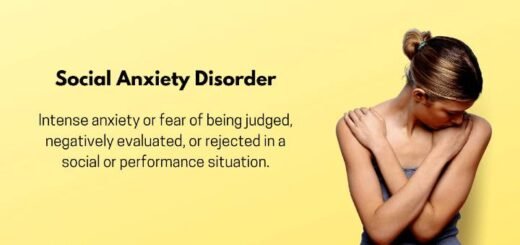Building Support Networks for NZ Students with Social Phobia
In New Zealand, students grappling with social phobia face unique challenges that can significantly impact their educational experience and overall well-being. Social phobia, characterized by an intense fear of social situations, can hinder a student’s ability to engage in classroom activities and build peer relationships. Fortunately, a variety of community resources and support networks are available to assist these students in overcoming their fears and fostering a more inclusive learning environment.
Organizations such as Social Phobia New Zealand provide valuable information and support tailored specifically for young people dealing with social phobia. By connecting students with counseling services, peer support groups, and educational workshops, these resources aim to empower individuals to manage their anxiety and thrive both academically and socially. Through community collaboration, New Zealand strives to create a supportive atmosphere for all students, ensuring that those facing social phobia are not left behind.
Understanding Social Phobia in New Zealand
Social phobia, also known as social anxiety disorder, affects many individuals in New Zealand, particularly students navigating academic and social pressures. This anxiety can manifest as extreme fear of social situations, leading to avoidance behaviors that hinder personal and academic growth. Understanding the nuances of social phobia is crucial for students, as it allows them to seek help and utilize available resources effectively.
In New Zealand, it’s estimated that around 12% of the population experiences social phobia at some point in their lives. The condition can lead to significant distress and impairment, particularly in environments that require social interaction, such as schools and universities. Recognizing the symptoms—such as excessive self-consciousness, fear of judgment, and avoidance of social events—can empower students to take proactive steps toward managing their anxiety.
For more comprehensive information on social phobia, students can explore resources offered by Social Phobia New Zealand, which provides valuable insights and support options tailored to their needs.
Local Support Groups and Counseling Services
Support groups play a pivotal role in helping students with social phobia connect with others who share similar challenges. In New Zealand, many local organizations and universities offer support groups that focus on anxiety management and provide a platform for sharing experiences.
For instance, the Anxiety New Zealand Trust offers peer support groups where individuals can discuss their struggles in a safe environment. Students can also find counseling services provided by their educational institutions, which often have mental health professionals trained to address social anxiety. These services can include one-on-one counseling, workshops, and group therapy specifically targeting social phobia.
Joining a support group can help students realize they are not alone in their experiences. It can also provide coping strategies and techniques to reduce anxiety in social situations. For additional information on finding support groups, students can visit Social Phobia New Zealand for resources and contacts that can assist them in managing their condition.
University Mental Health Services
New Zealand universities typically offer robust mental health services designed to support students facing various challenges, including social phobia. These services may include counseling, workshops, and mental health awareness programs tailored to students’ needs.
Students are encouraged to reach out to their university counseling centers, which often provide free, confidential services. These centers can connect students with trained professionals who understand the complexities of social phobia. Many universities also run specific programs aimed at building social skills and confidence through group interactions and role-playing scenarios.
Additionally, universities may host events that promote social engagement while being mindful of the needs of students with anxiety. Such events can serve as low-pressure environments for students to practice their social skills. For more information about university mental health services, students can check their institution’s website or visit Social Phobia New Zealand for broader resources.
Online Resources and Forums
The internet offers a wealth of resources for students dealing with social phobia. Numerous websites, forums, and online communities provide valuable information, support, and a sense of connection for those struggling with anxiety. Engaging in online discussions can help students express their feelings and share coping strategies without the pressure of face-to-face interactions.
One notable resource is the Social Phobia New Zealand website, which features articles, personal stories, and expert advice on dealing with social anxiety. Online forums also allow students to interact with others who understand their challenges, share experiences, and provide encouragement.
Students can also explore social media platforms and groups dedicated to mental health awareness, where they can find additional support and resources. Participating in these online communities can help reduce feelings of isolation and provide a platform for students to seek advice and share their journeys.
Mindfulness and Relaxation Techniques
Practicing mindfulness and relaxation techniques can significantly benefit students facing social phobia. These strategies help individuals manage anxiety symptoms by promoting relaxation and enhancing self-awareness. In New Zealand, various workshops and classes focus on teaching mindfulness, meditation, and breathing exercises geared toward anxiety relief.
Many universities and community centers offer programs that introduce mindfulness practices, such as yoga and meditation sessions, which can help students develop coping mechanisms for their social anxiety. Engaging in these activities regularly can reduce stress levels and improve emotional well-being, making social interactions less daunting.
Students can also explore free online resources and apps that offer guided meditations and mindfulness exercises. Incorporating these techniques into their daily routines can help students build resilience against the triggers associated with social phobia. For more tips and resources on managing social anxiety, students can visit Social Phobia New Zealand.
Building a Supportive Social Network
Creating a supportive social network is essential for students dealing with social phobia. A strong support system can provide encouragement, understanding, and a safe environment for individuals to express their feelings. Students can start by reaching out to friends, family, or classmates who can empathize with their experiences.
Participating in clubs or organizations that align with personal interests can also help students gradually integrate into social settings. Many universities in New Zealand offer various clubs and societies, ranging from sports to arts, where students can engage with others in a more structured and less intimidating environment.
Additionally, students can consider finding a mentor or peer buddy who understands their challenges and can provide support in navigating social situations. This connection can create a sense of accountability and motivation to engage more actively in social interactions. For more information on building supportive networks, students can refer to Social Phobia New Zealand for tips and community-building resources.
Seek Professional Help and Treatment Options
For students facing severe challenges related to social phobia, seeking professional help can be a vital step toward recovery. In New Zealand, various treatment options are available, including cognitive-behavioral therapy (CBT), exposure therapy, and medication management.
Students can consult with their general practitioners (GPs) to discuss their symptoms and obtain referrals to mental health professionals specializing in anxiety disorders. Many mental health practitioners in New Zealand have experience working with students and can provide tailored treatment plans to address social phobia.
Moreover, universities often have partnerships with local healthcare providers to ensure students have access to the necessary support. The combination of therapy and, if needed, medication can significantly reduce the symptoms of social phobia, empowering students to engage in their academic and social lives more fully.
For additional information on treatment options and mental health resources, students can visit Social Phobia New Zealand, which offers guidance on navigating the mental health system and finding appropriate support.
FAQs
What is social phobia, and how does it affect students in New Zealand?
Social phobia, also known as social anxiety disorder, is characterized by an intense fear of social situations and being judged by others. For students in New Zealand, this can lead to avoidance of classes, extracurricular activities, and social gatherings, significantly impacting their academic performance and overall well-being.
What community resources are available for students with social phobia in New Zealand?
New Zealand offers various community resources for students facing social phobia, including counseling services, support groups, and mental health organizations. Institutions like the New Zealand Mental Health Foundation provide information and resources, while local community centers often host support groups that foster understanding and coping strategies.
How can students access mental health support for social phobia in New Zealand?
Students can access mental health support through school counselors, local health clinics, and mental health professionals. Many universities and colleges also have dedicated counseling services that focus on mental health challenges, including social phobia, and offer confidential support and guidance.
Are there any online resources for students dealing with social phobia?
Yes, there are numerous online resources available for students coping with social phobia. Websites like Anxiety NZ and the Mental Health Foundation of New Zealand provide valuable information, self-help tools, and online support groups where students can connect with others facing similar challenges.
What role do peer support networks play in helping students with social phobia?
Peer support networks can be incredibly beneficial for students with social phobia. These networks offer a safe space for students to share their experiences and feelings, build confidence, and develop social skills in a supportive environment. Many schools and universities have peer mentoring programs that can help students connect with others who understand their struggles.
Can involvement in extracurricular activities help students with social phobia?
Involvement in extracurricular activities can be helpful for students with social phobia, as it provides opportunities to gradually face social situations in a structured and supportive environment. Activities that align with their interests can help students build confidence and social skills while reducing anxiety over time.
What steps can students take to manage their social phobia effectively?
Students can manage social phobia effectively by seeking professional help, practicing relaxation techniques, and gradually exposing themselves to social situations. Developing coping strategies, such as deep breathing exercises and positive self-talk, along with building a support network of friends and family, can also be beneficial in overcoming the challenges associated with social phobia.
References
- Social Phobia New Zealand – A dedicated resource for individuals dealing with social phobia, offering information, support, and community connections.
- Student Support – An organization providing support services tailored for students, including mental health resources and coping strategies for anxiety-related challenges.
- Mental Health Foundation of New Zealand – A comprehensive resource focusing on mental health awareness and support, including specific guidance for students facing anxiety and phobias.
- Youthline – A helpline and support service for young people in New Zealand, offering confidential support and resources for those struggling with mental health issues.
- New Zealand Ministry of Health – Mental Health – The official health ministry’s page providing resources and information on mental health services available across New Zealand, including support for students.




